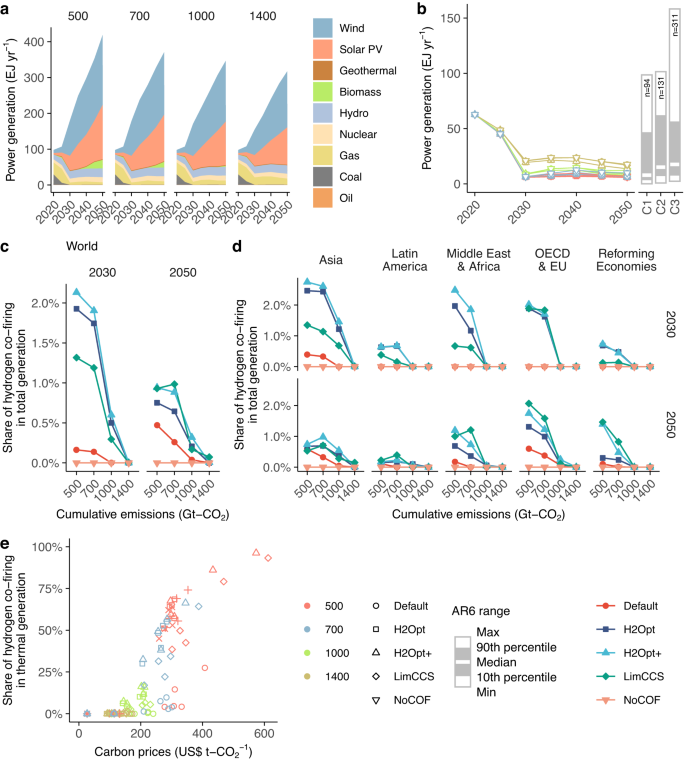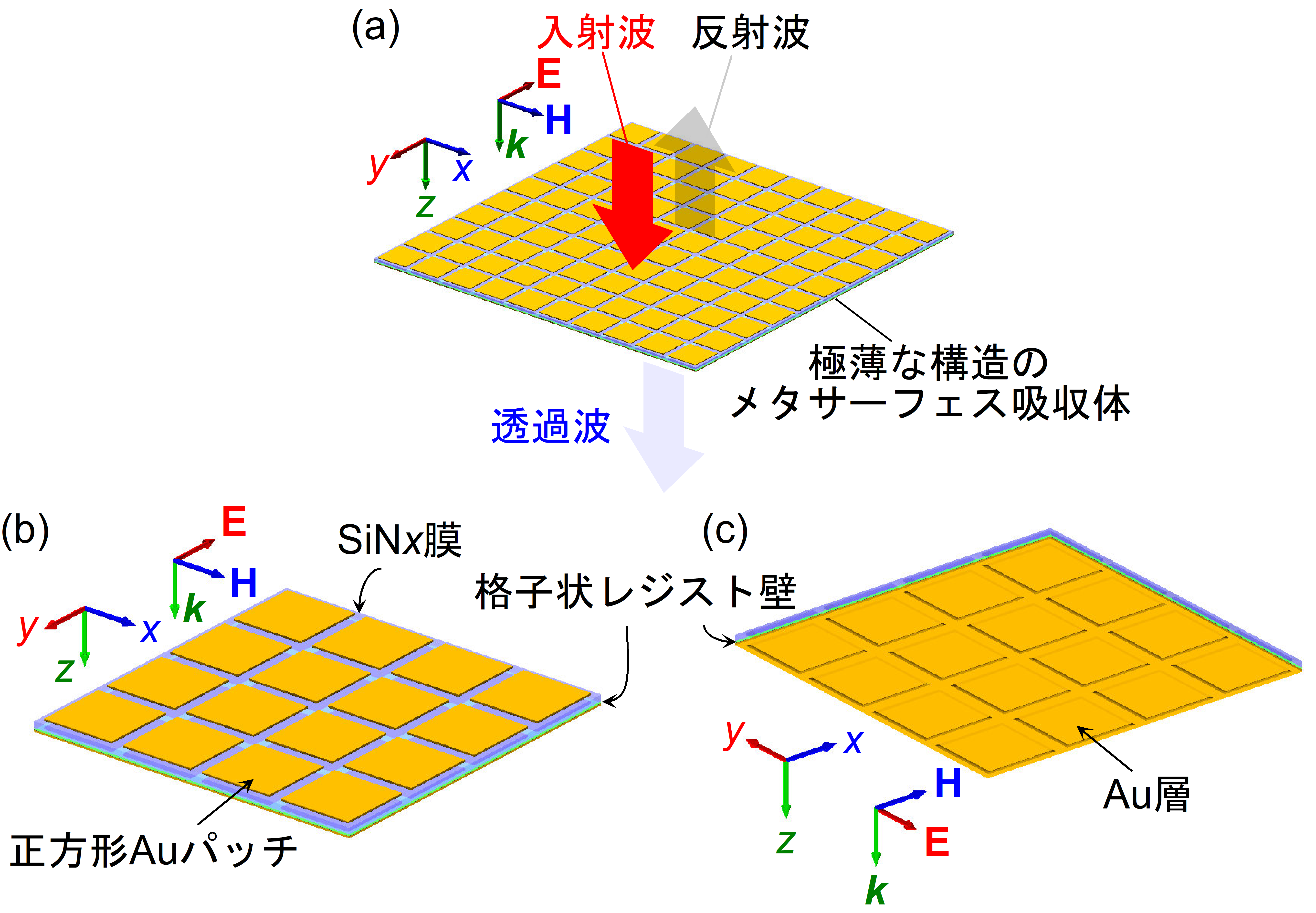2024-03-05 京都大学
石炭・ガス等の火力発電の早期退出、およびそこからの二酸化炭素排出抑制は脱炭素化に向けた主要策の一つとされています。再生可能エネルギー等から製造された水素・アンモニアを発電に活用することは、石炭・ガスとの混焼も含め、火力発電からの排出削減に寄与する可能性がありますが、世界全体の脱炭素化にどの程度貢献し得るかは明らかにされていませんでした。
都市環境工学専攻の大城賢 助教、藤森真一郎 同教授は、世界全域を対象としたエネルギーシミュレーションモデルを用い、脱炭素化に向けた水素・アンモニア発電の役割について分析しました。その結果、水素・アンモニア発電が世界の発電電力量に占める割合は、最大でも1%程度に留まることが示されました。水素・アンモニアの費用が大きく低下すれば、火力発電設備の約半数が水素混焼付きとなる可能性があります。しかし、年間を通じた稼働時間は太陽光・風力発電の出力が低下するごく限られた時間に留まることが分かりました。また、発電部門での水素・アンモニアの活用は限定的であった一方、航空・船舶用燃料への活用は比較的進みやすいことが分かりました。
本成果は、2024年3月4日に国際学術誌「Nature Communications」にオンライン掲載されました。
研究詳細
脱炭素社会における水素・アンモニア発電の貢献は限定的であることを解明
研究者情報
大城 賢
藤森 真一郎
書誌情報
Limited impact of hydrogen co-firing on prolonging fossil-based power generation under low emissions scenarios(低排出シナリオにおいて水素混焼が火力発電の延命に及ぼす影響は限定的)
著者 Ken Oshiro, Shinichiro Fujimori
掲載誌 Nature Communications
DOI 10.1038/s41467-024-46101-5

Abstract
Climate change mitigation generally require rapid decarbonization in the power sector, including phase-out of fossil fuel-fired generators. Given recent technological developments, co-firing of hydrogen or ammonia, could help decarbonize fossil-based generators, but little is known about how its effects would play out globally. Here, we explore this topic using an energy system model. The results indicate that hydrogen co-firing occurs solely in stringent mitigation like 1.5 °C scenarios, where around half of existing coal and gas power capacity can be retrofitted for hydrogen co-firing, reducing stranded capacity, mainly in the Organization for Economic Co-operation and Development (OECD) countries and Asia. However, electricity supply from co-firing generators is limited to about 1% of total electricity generation, because hydrogen co-firing is mainly used as a backup option to balance the variable renewable energies. The incremental fuel cost of hydrogen results in lower capacity factor of hydrogen co-fired generators, whereas low-carbon hydrogen contributes to reducing emission cost associated with carbon pricing. While hydrogen co-firing may play a role in balancing intermittency of variable renewable energies, it will not seriously delay the phase-out of fossil-based generators.




